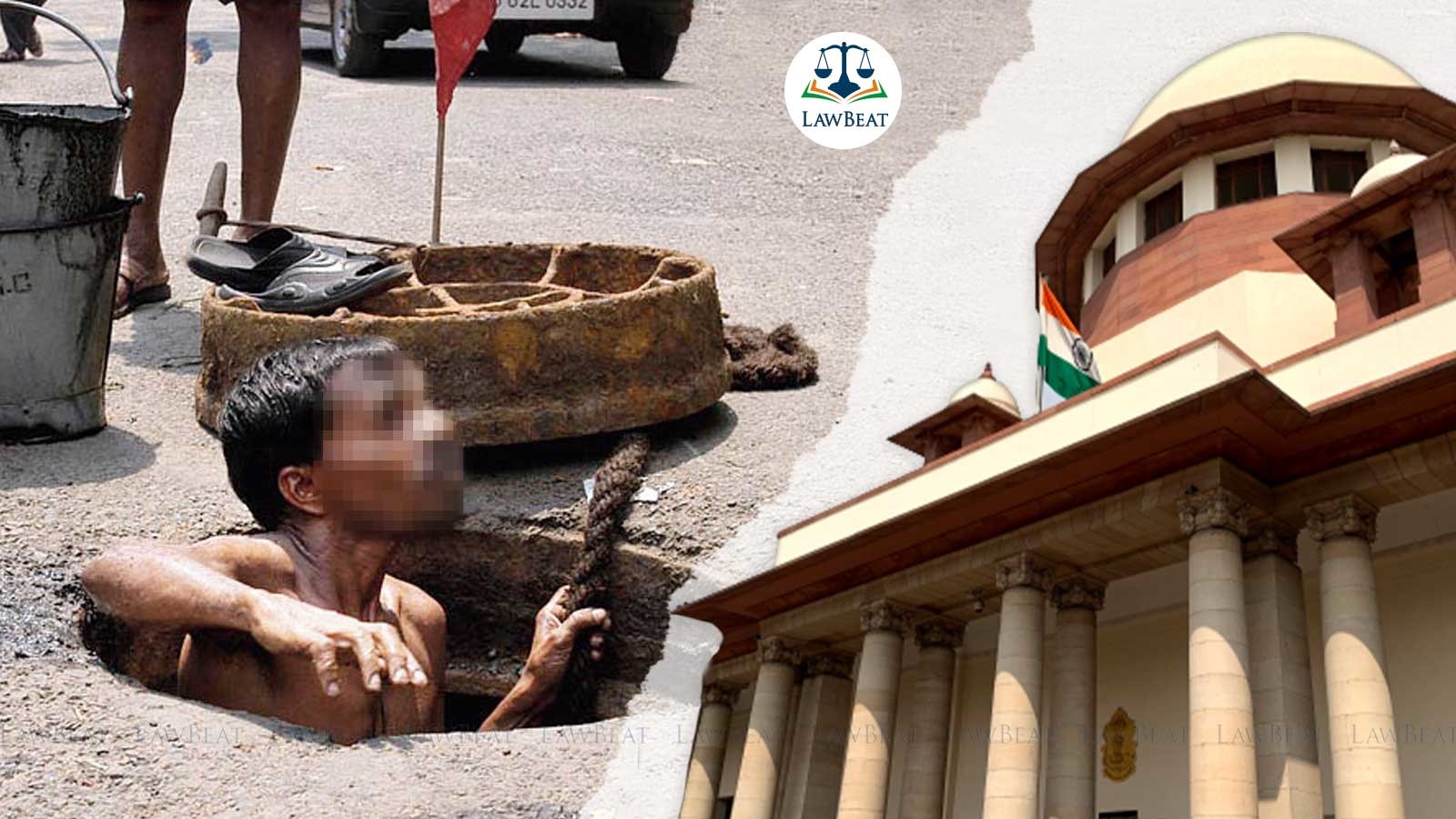Union, States duty bound to completely eradicate manual scavenging: Supreme Court orders 30 lakhs compensation for sewer deaths

In its judgment, the top court has noted that manual scavenging persists despite the passing of “Employment of Manual Scavengers and Construction of Dry Latrines (Prohibition) Act, 1993” and the “Prohibition of Employment as Manual Scavengers and Their Rehabilitation Act, 2013"
The Supreme Court has directed Union of India to take appropriate measures and frame policies, and issue directions, to all statutory bodies, including corporations, railways, cantonments, as well as agencies under its control, to ensure that manual sewer cleaning is completely eradicated in a phased manner.
Union and the States are duty bound to ensure that the practice of manual scavenging is completely eradicated, a bench of Justices S Ravindra Bhat and Aravind Kumar has observed.
"If we are to be truly equal, in all respects the commitment that the constitution makers gave to all sections of the society, by entrenching emancipatory provisions, such as Articles 15 (2), 17, 23 and 24, each of us must live up to its promise....Each of us owe it to this large segment of our population, who have remained unseen, unheard and muted, in bondage, systematically trapped in inhumane conditions", the top court has observed.
With this view, the government has been asked to issue such guidelines and directions as are essential, that any sewer cleaning work outsourced, or required to be discharged, by or through contractors or agencies, do not require individuals to enter sewers, for any purpose whatsoever.
Court has also increased the compensation for sewer deaths (the previous amount fixed, i.e., 10 lakhs) to an amount of Rs. 30 lakhs.
"Likewise, in the case of sewer victims suffering disabilities, depending upon the severity of disabilities, compensation shall be disbursed. However, the minimum compensation shall not be less than 10 lakhs. If the disability is ₹ permanent, and renders the victim economically helpless, the compensation shall not be less than 20 lakh", the order adds.
Notably, the National Commission for Safai Karamcharis (“NCSK”); the National Commission for Scheduled Castes (“NCSC”), and the National Commission for Scheduled Tribes ("NCST”) and the Secretary, Union Ministry of Social Justice and Empowerment, has been directed to, within months, draw modalities for the conduct of a National Survey to identify manual scavengers. The survey shall be ideally conducted and completed in the next one year, court has added.
Court has further directed to ensure that full rehabilitation (including employment to the next of kin, education to the wards, and skill training) measures are taken in respect of sewage workers, and those who die.
Addressing the issue of rehabilitation of these hazardous workers, and their families who would be be rendered without a bread-winner, the judgment adds,
"...mere economic measures would not suffice in the upliftment of the family. Rehabilitation would require elements of long-term and short-term socio-economic measures such as scholarships, etc. To this end, this Court finds that entitlements which are akin to those given to manual scavengers must be granted to families of hazardous workers who had died in sewers and septic tanks.... In addition to the families of the hazardous workers, endeavors must be made to rehabilitate such persons who continue to be employed as hazardous workers without any protective gear or cleaning devices. States must suitably frame policies to ensure that all hazardous workers are given access to rehabilitative entitlements."
The matter will now be taken up on February 1, 2023.
Case Title: DR. BALRAM SINGH vs. UNION OF INDIA & ORS
